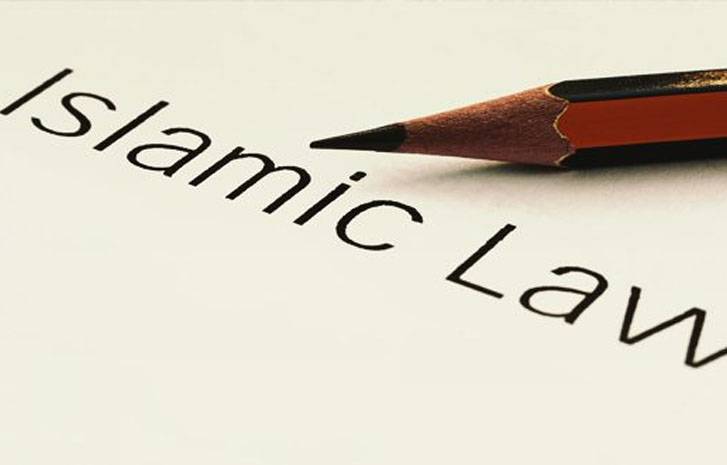Table of Contents
Introduction to Muslim Law
- Islam is a strong advocate of marriage.
- There is no place of celibacy on Islam unlike few other religions.
- The Prophet has said that “there is no celibacy is Islam”.
- According to Islam marriage is the only legitimate or halal way to indulge in intimacy between a man and woman. It is a social need because through marriage, families are established and the families are the fundamental entities of our society.
- Islamic marriages do not allow polyandry but permits polygamy.
- Polygamy was actually guarded by several conditions by Prophet but these conditions are not obeyed by the Muslims.
Pre Islamic Position of marriages
Before the birth of Islam there were several traditions in Arab. These traditions were having several unethical processes like:
- Buying a girl from parents for a sum of money
- Temporary marriages
- Marriage with two real sisters
- Freeness of giving up and again accepting a woman
After the birth of Islam these unethical traditions were abolished and a drastic change in their concept of marriage came in.
Concept of Marriage under Muslim law
According to Bailies Digest 2- A nikah is Arabic means “union of the series” and carries a civil contract for the purposes of legalizing sexual intercourse and legitimate procreation of children.
It is a matter of query still existing whether Muslim marriage is only a civil contract or an Ibadat and Muamlat. The various definitions of Muslim marriage make it quite confusing to say which one is the most appropriate. Although, the essentials of a contract are fulfilled yet marriage can never be merely a contract because it creates a bondage between the emotions and thinking of two people. Therefore, J Sarsah Sulaiman has said “In Islam marriage is not only a civil contract but also a sacrament.”
Muslim marriage can be differentiated from a civil contract on the following grounds:
- It cannot be done on the basis of future happenings unlike contingent contracts.
- It cannot be fixed for a time period.
Purpose of Marriage
The general purpose of marriage is that the partners can provide company to each other, procreate legitimate children and live in peace & tranquillity to the commandments of Allah. Marriage serves as a mean to emotional and sexual gratification and as a mean of tension reduction.
Capacity for marriage
The essentials for marriage under Islam are as follows:
- Any person who has attained puberty and is of sound mind can marry
- If there is no proof of puberty then the age of puberty is considered 15 years
- A minor or insane who has not attained the age of puberty can be contracted into marriage by their respective guardians.
- A marriage without consent is void unless the party is not lunatic.
- Proposal by one party and acceptance by the other is a must for a valid marriage
- The proposal and acceptance must be in one meeting.
- There must be two or one male and two females for witness, who must be sane and adult Muslims. (not needed in Shia law)
- Neither writing nor any religious ceremony is needed.
- If the Wali says that “I will marry her to you after two months”, there is no marriage.
- The woman must not be from forbidden class.
- The consent must be free from duress, coercion or undue influence.
Kinds of Marriage
Under Muslim Laws there are two types of marriages: Muta marriage and regular marriage
Muta Marriage
It is a temporary marriage. It is recognized by the Shia only. Sunni law doesn’t recognize it. A male Shia can contract a Muta marriage with a woman who is a Mahomedan, Christian or Jewish. But, a Shia woman cannot contract a Muta marriage with a non Muslim.
Essential of Muta marriage are:
- The period of cohabitation should be fixed
- Dower should be fixed
- If dower is specified and terms are not specified then it can amount to regular marriage.
- If term fixed dower is not specified then it amounts to void marriage.
Aspects of marriage
Valid or Sahih
A valid marriage is that which has been constituted in accordance with the prescribed essentials. It confers upon the wife; the right of dower, maintenance and residence, imposes her obligation to be faithful and obedient to her husband, admit sexual intercourse with him and observe iddat.
Irregular or Fasid marriage
- A marriage without any witness (Shia law)
- Marriage with fifth wife
- Marriage with a woman undergoing Iddat
- Marriage with a fire- worshiper
- Marriage outcome of unlawful conjunction
An irregular marriage has no legal effect before consummation but when consummated then it gives rise to several rights and obligations.
Void or Batil marriage
It is a marriage which is not lawful from the beginning. It does not create and civil rights or obligations between the parties. These marriage are outcomes of :
- Marriage through forced consent
- Plurality of husband
- Marriage prohibited on the ground of consanguinity, affinity or fosterage.
Effects of a marriage (sahih)
- Mutual intercourse legalized
- Children born out of such marriage are legitimate
- The wife gets Mahr
- The wife is entitled to get maintenance
- The husband gets right to guide and prohibit her wife’s movement (for valid reasons only)
- Right of succession develops
- Woman is bound to complete Iddat period and not marry anybody else during this period
Author: Khushi Maheshwari Maheshwari,
Fairfield Institute of Management and Technology

